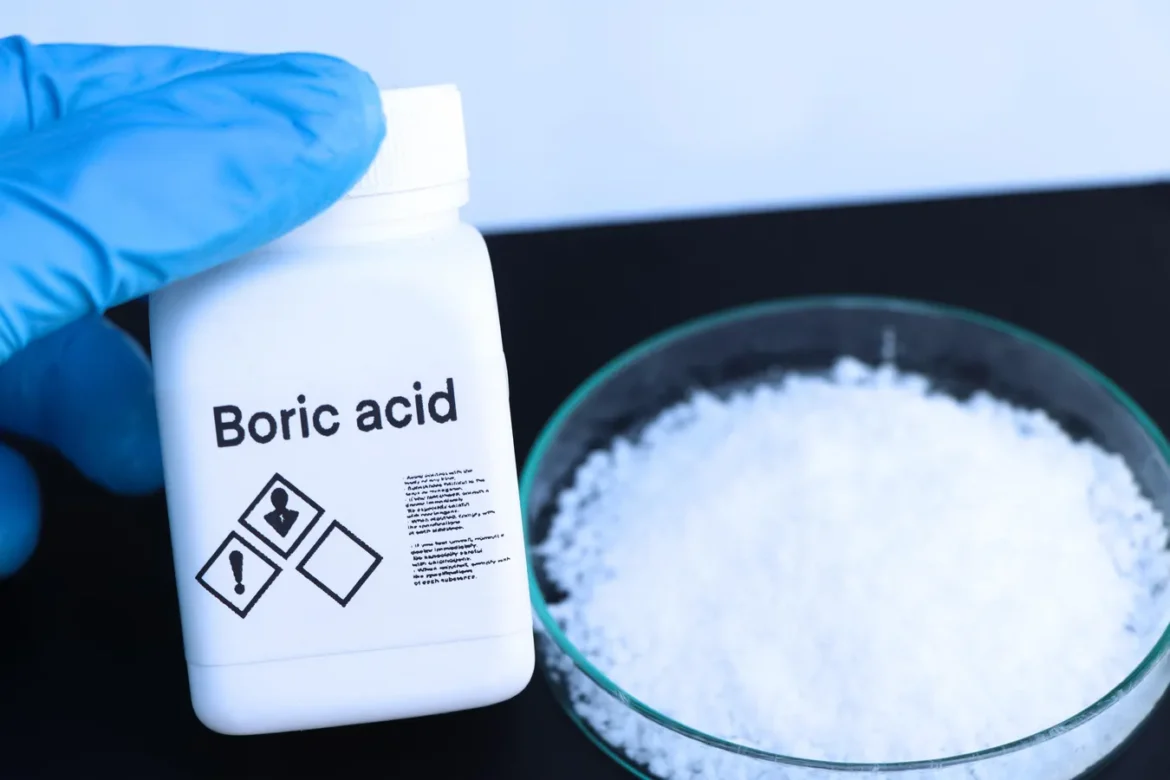Introduction
You may have heard scary claims like “deaths from boric acid suppositories” or “boric acid suppository overdose.” It’s enough to trigger worry. When we dig in, though, the truth is more nuanced. This article explores the risks, realities, and safe-use guidelines of the vaginal use of boric acid suppositories — so you can feel informed, not frightened.
We’ll cover:
- What vaginal boric acid suppositories are and why people use them.
- Whether deaths from boric acid suppositories have ever been documented.
- What to watch out for in misuse or accidental ingestion.
- How to use them safely.
- Myths vs. research regarding toxicity.
Let’s dive in together.
Understanding
What is boric acid? It’s a chemical compound (formula H₃BO₃) derived from boron, hydrogen and oxygen. It’s used in pesticides, antiseptics, and — yes — in some vaginal suppositories. (Wikipedia)
How do vaginal boric acid suppositories work?
- They’re inserted into the vagina (usually a capsule ~600 mg) to treat recurrent vaginal yeast or bacterial infections. (Healthline)
- The acid creates a more hostile environment for yeast/bacteria, and may disrupt fungal biofilms that are hard to treat otherwise. (Healthline)
- Absorption into the bloodstream via vaginal use appears to be very low. For example, one review found approx. 6% absorption in one volunteer. (PMC)
Why is absorption relevant? Because toxicity depends on how much of the chemical reaches your system. If absorption is minimal, the risk of systemic effects (including death) drops significantly.
Important distinction:
- Vaginal use (suppository) — low absorption, generally safe when used correctly.
- Oral ingestion or misuse — much higher absorption, serious toxicity possible. (Healthline)
The Facts Explained
When people search “deaths from boric acid suppositories,” what they often worry about is: “If I use this, could I die?” The short answer: Highly unlikely — when used correctly.
The good news:
- Multiple reliable sources state no deaths have been reported from vaginal use of boric acid suppositories. (Healthline)
- For instance, a review by Consumer MedSafety found that a single swallowed capsule did not lead to serious harm. (consumermedsafety.org)
- Toxic doses reported in literature involve oral ingestion of many grams of boric acid — way beyond typical suppository doses. (PMC)
The caution:
- While vaginal use is low-risk for healthy adults, misuse (especially swallowing, overuse, damaged tissue) introduces risk.
- For example: A case of a 45 yr-old man died after ingesting a large dose of boric acid crystals orally. (PubMed)
- From toxicity reviews: Doses of ~15–20 g in adults are considered “potentially lethal” when ingested. (PMC)
Table: Risk comparison
| Use scenario | Typical dose | Absorption | Reported death risk |
| Vaginal suppository (600 mg) | ≈ 600 mg | Very low (~6% or less) | No confirmed deaths from correct use |
| Oral ingestion (large dose) | Several grams | High | Documented deaths (in misuse/ingestion cases) |
| Overuse/damaged mucosa/children | Variable | Could increase | Theoretical risk higher; data limited |
So the core idea: Deaths from boric acid suppositories are extraordinarily rare — when used as intended.
What Actually Happened
Let’s walk through some real-world case studies (yes, there are some) to clarify what we do know:
Case Study A: The adult ingestion fatality
- 45-year-old man deliberately drank two cups of boric acid crystals in water (suicide attempt). (PubMed)
- He developed kidney failure, arrhythmia, circulatory collapse and died ~17 hrs after hospital admission.
- Autopsy confirmed boron toxicity.
- This case involved ingestion, not vaginal insertion.
Case Study B: Accidental swallowing of a vaginal suppository
- A woman mistook a vaginal boric acid capsule for an oral pill and swallowed one. (consumermedsafety.org)
- She went to ER; according to poison control, the amount was too low to cause serious harm. No death.
- The incident highlights confusion in packaging/use rather than typical therapeutic use.
Key takeaway from these real cases:
- Fatalities associated with boric acid are tied to oral ingestion, often large amounts, sometimes self-harm or accidental by kids.
- Vaginal use, when done correctly, has no documented deaths in the literature. (Healthline)
- That means the phrase “deaths from boric acid suppositories” is misleading if taken to mean deaths from correct use.
What to Watch Out For
Whether misuse or accidental ingestion, it helps to know what symptoms could indicate trouble.
Early/mild signs
- Nausea, vomiting, abdominal pain, diarrhea (Healthline)
- Vaginal use side-effects: burning sensation, watery discharge, redness (poison.org)
More serious/advanced symptoms
- Kidney failure, lethargy, seizures or tremors in severe poisoning cases. (PubMed)
- “Boiled lobster” rash (red rash on palms/soles) noted in some acute exposures. (oklahomapoison.org)
- Possible death if massive ingestion and/or delayed treatment. (Mount Sinai Health System)
Safety checklist for vaginal suppository users
- Use only as directed (often ~600 mg once daily for 1–2 weeks for recurrent infections) (Medical News Today)
- Never swallow the capsule.
- Avoid if you’re pregnant or suspect a serious infection until you’ve consulted a doctor. (Healthline)
- If you experience worsening symptoms (fever, chills, abdominal pain) stop use and see your doctor.
Safe Use of Boric Acid Suppositories
Employing vaginal boric acid suppositories safely helps you avoid the “what if” scenarios and the worry over “deaths from boric acid suppositories.”
How to use them correctly
- Read the product label and ensure it is for vaginal use only.
- Usual dose in literature: 600 mg capsule inserted in vagina once daily (sometimes twice) for 7-14 days. (Healthline)
- Insert before bed (so minimal leaking, you’re lying down).
- Avoid intercourse or at least use a barrier method while using — there’s risk your partner may ingest material. (Healthline)
- Store capsules away from children and pets; don’t keep them near oral medications. (consumermedsafety.org)
When not to use them
- If you’re pregnant, trying to conceive, or breastfeeding (insufficient safety data) (Healthline)
- If you have open genital sores, vaginal bleeding, or suspect an STI/pelvic-inflammatory disease.
- If you’re injecting them or using orally — that’s misuse and increases risk of serious toxicity.
Side-effects you might see
- Mild burning or stinging after insertion
- Watery or slightly increased vaginal discharge
- Possibly male partner discomfort during intercourse if medication remains on tissues. (poison.org)
If you see severe side-effects (severe pain, rash, fever), stop use and contact your doctor.
Doctor Recommended Alternatives and Natural Remedies
If you’re hesitant about using boric acid for your recurrent vaginal infection, here are alternatives and add-ons to consider:
- Prescription antifungals: e.g., oral fluconazole or topical azoles (when yeast infection is first-line). (Medical News Today)
- Probiotic vaginal suppositories or oral probiotics: to support healthy vaginal flora.
- Lifestyle hygiene changes: avoid douching, wear breathable underwear, limit sugar intake (yeast feeds on sugar).
- Other non-boric acid vaginal treatments: Some OTC antifungal gels or creams.
Always consult your OB-GYN or primary care provider — persistent or recurrent infections may signal an underlying issue.
Myths and Misconceptions
Let’s debunk a few running around the internet.
Myth 1: “Deaths from boric acid suppositories are common.”
Reality: No credible medical literature documents deaths from proper vaginal use of boric acid suppositories. The fatal cases involve large oral ingestion. (Healthline)
Myth 2: “If you use them daily you’ll end up toxic.”
Reality: When used as directed (typically once a day for limited duration) absorption is very low; toxicity risk is minimal in healthy individuals. (PMC)
Myth 3: “They’re completely safe for everyone.”
Reality: Not so. Safe for many, but you shouldn’t use them if pregnant, have open sores, or have certain health conditions. Incorrect administration (swallowing, overuse) poses real risk.
Why these myths spread
- Confusion between oral ingestion (dangerous) vs. vaginal suppository use (safer).
- Packaging may look like oral capsules → accidental ingestion. (nabp.pharmacy)
- Online scare content thrives: e.g., “deaths from boric acid suppositories” headline gets clicks.
Analogy: Using boric acid suppositories correctly is like driving a car within speed limits safe. Driving it recklessly (wrong direction, high speed) is dangerous.
What Medical Experts and Research Say
- According to a review, vaginal use of ~600 mg showed no detectable systemic boron in blood in one patient. (poison.org)
- The review of safety data stated: “While doses of 15–20 g ingested orally are considered potentially lethal, the amount in typical vaginal suppositories (600 mg) is far lower.” (PMC)
- The U.S. Food and Drug Administration (FDA) has not approved boric acid for vaginal infections; many products are sold as homeopathic. That means oversight is lower. (Healthline)
Quote from a medical toxicologist:
“No deaths have been reported from correctly inserted boric acid vaginal suppositories, but ingestion remains dangerous.” — Kelly Johnson-Arbor, MD (poison.org)
So when you see claims like “risk of death from boric acid suppositories,” you need to ask: Is that actually vaginal use or ingestion? The difference is huge.
Final Thoughts
Here’s the summary for you:
- Deaths from boric acid suppositories (meaning vaginal insertion as directed) are extremely rare to nonexistent in credible medical literature.
- The real danger comes from using them incorrectly swallowing them, over-using them, or using them in unsafe conditions.
- Use the product as instructed, store it appropriately, avoid use in pregnancy (unless a doctor approves), and seek help if you notice worsening symptoms.
- If you ever doubt whether what you’re doing is safe talk to a qualified healthcare provider.
Bottom line: When used wisely, a boric acid suppository can be an effective tool for recurring vaginal infections without undue fear. But like any tool, misuse or neglect of instructions raises risk. You deserve both clarity and peace of mind.
FAQs
Q1: Can using a boric acid suppository kill you?
No — when used vaginally and per instructions, it’s highly unlikely to cause death. Deaths reported involve swallowing large doses. (Healthline)
Q2: If someone inadvertently swallows a boric acid suppository, what should I do?
Call your local poison control or emergency services immediately. Give the product information. Quick action matters. (poison.org)
Q3: Are boric acid suppositories safe during pregnancy?
They’re generally not recommended during pregnancy due to limited safety data. Consult your doctor. (PMC)
Q4: How do I differentiate these suppositories from oral capsules to avoid accidental ingestion?
- Look for packaging marked “For vaginal insertion only”.
- Use products with applicators.
- Store them away from oral medications. (nabp.pharmacy)
Q5: If I have recurrent yeast or BV, should I just use boric acid instead of medicine?
Not always. It’s often used when first-line treatments fail or infections recur. Speak to your gynecologist for personalized advice.



